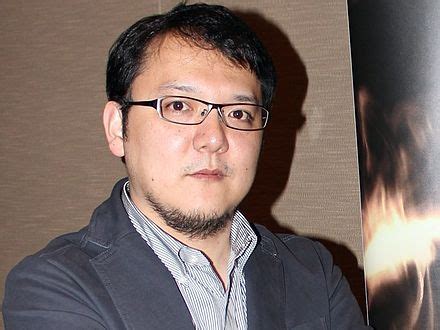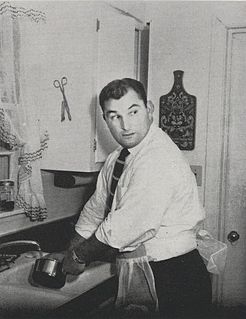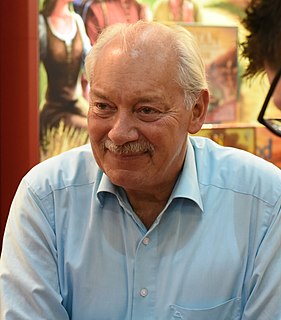A Quote by Hidetaka Miyazaki
I am conscious of that when I make these games: I try to make a game that has beautiful open spaces, gaps, room for players to enjoy it in ways that were not authored. I never want it to be where you have to follow the rules completely, where you have to do things exactly as the designers intended.
Related Quotes
We were made to enjoy music, to enjoy beautiful sunsets, to enjoy looking at the billows of the sea and to be thrilled with a rose that is bedecked with dew… Human beings are actually created for the transcendent, for the sublime, for the beautiful, for the truthful... and all of us are given the task of trying to make this world a little more hospitable to these beautiful things.
It never changes. Football is a game of repetition, mental and physical. You may try to articulate it a little different, but it's the same thing: Get better players, make fewer mistakes, and drill the fundamentals into your players' heads. The rest of it is a joke. Teams aren't winning because of what they had for breakfast of what some coach said in the locker room.
Selling five million units in less than 14 months means DS is the fastest among any game machines ever launched in Japan to hit that level. To achieve this rapid growth, we were required not only to go after frequent game players, but to reel back people who had left games and to make video games enjoyable for those who had not played games at all.
It was, like, two mobile games I released. They did pretty well, and after I made those two games, I was like, 'Man, I want to make another game, but I want to make this game for PlayStation and Xbox and PC.' I was like, 'You know what? Forget making the video game for Xbox, PlayStation and PC. How about I make my own console?'
Practice is tough. We try to purposely make it difficult on our players on whatever it is that we're trying to do during the week to get ready for that opponent so that we see the most difficult looks, so that we make our players aware of the things that could certainly impact the game in a negative fashion.
I feel such a creative force in me: I am convinced that there will be a time when, let us say, I will make something good every day , on a regular basis....I am doing my very best to make every effort because I am longing so much to make beautiful things. But beautiful things mean painstaking work, disappointment, and perseverance.
I am a partisan for conversation. To make room for it, I see some first, deliberate steps. At home, we can create sacred spaces: the kitchen, the dining room. We can make our cars 'device-free zones.' We can demonstrate the value of conversation to our children. And we can do the same thing at work.
Rules of Play is an exhaustive, clear, cogent, and complete resource for understanding games and game design. Salen and Zimmerman describe an encyclopedia of game design issues, techniques, and attributes. In particular, they analyze the elements that can make a game experience richer, more interesting, more emotional, more meaningful, and, ultimately, more successful. It should be the first stop you make when learning about game design.






































